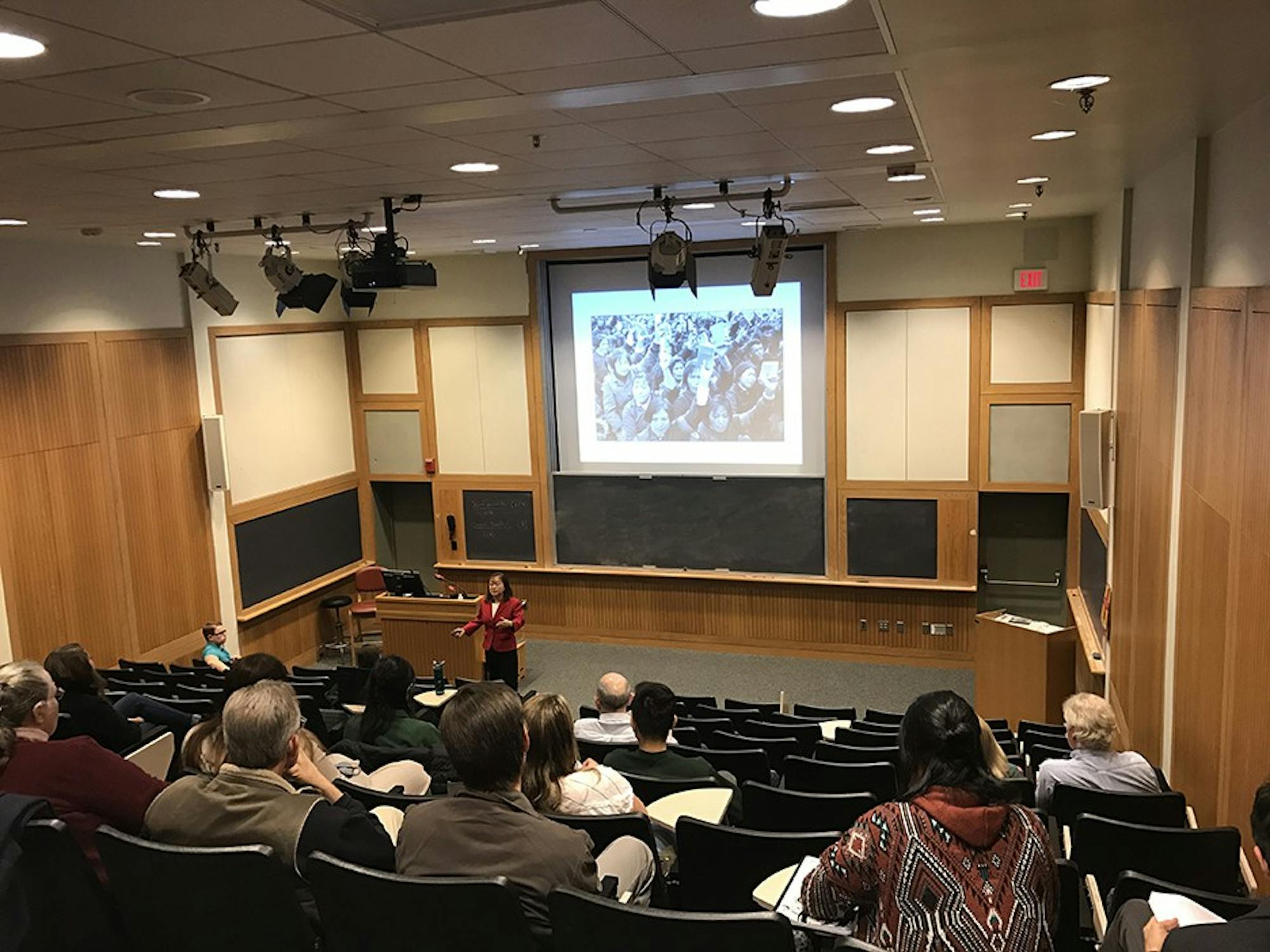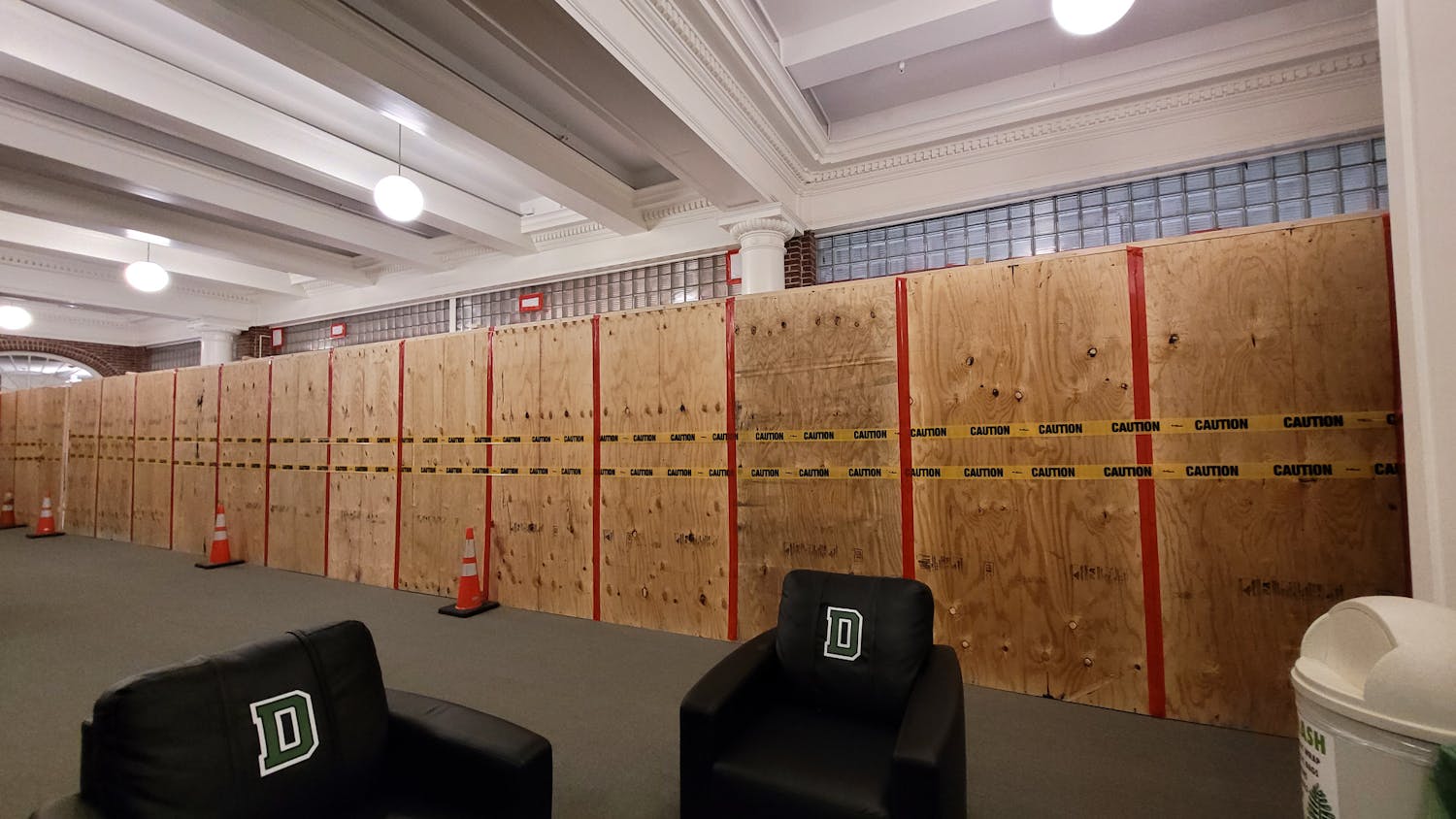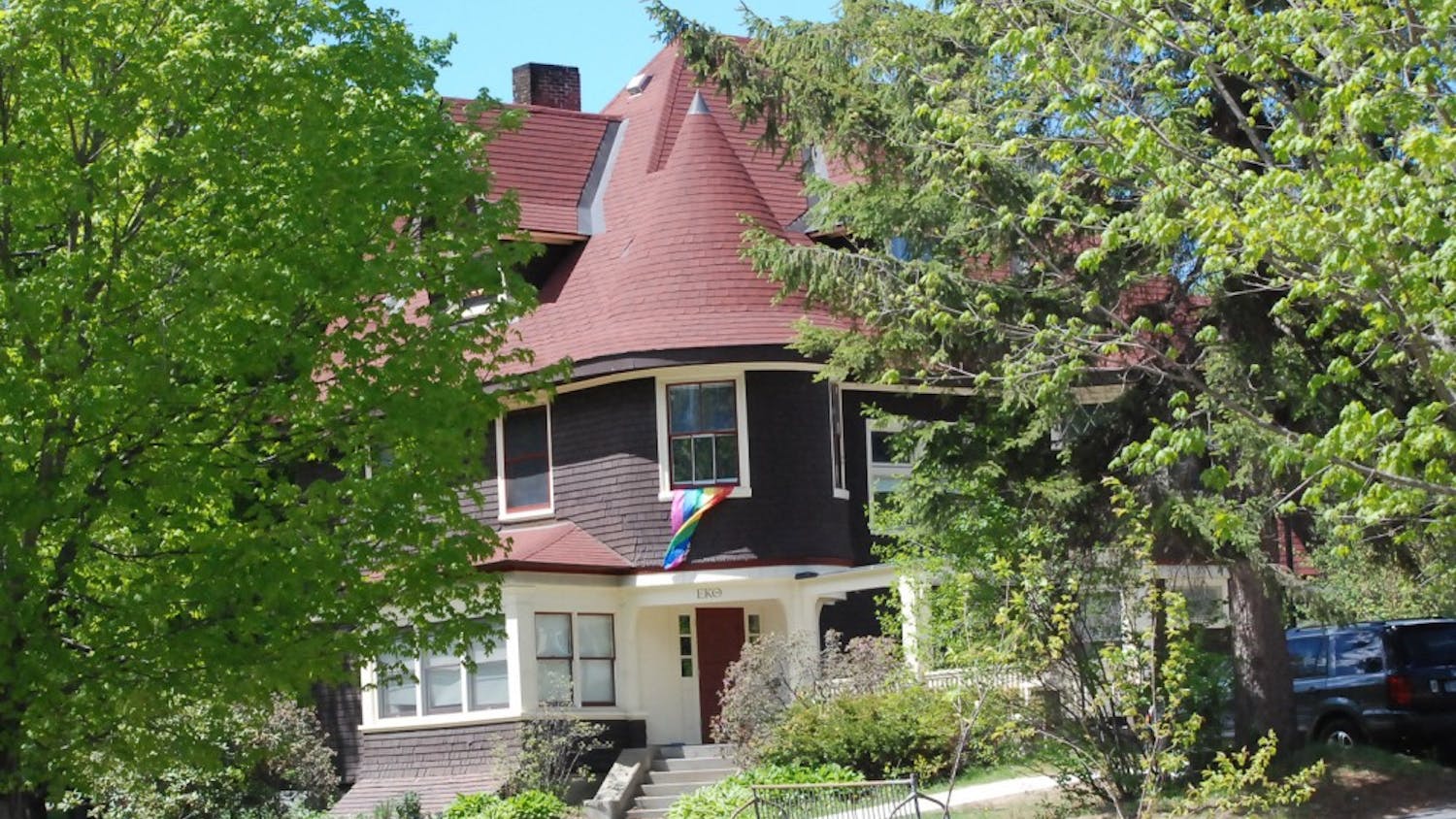Last Tuesday, Dartmouth’s new Turning Point USA chapter held its first public event. The chapter, which was founded by Connor Turner ’20 and Tyler Baum ’20, is a part of the larger TPUSA group that has appeared on many college campuses and high schools across the country and is known for its founder, conservative activist Charlie Kirk, and its Professor Watchlist, on which Dartmouth’s women’s, gender and sexuality studies professor Eng-Beng Lim was listed.
According to its website, TPUSA was founded in 2012 and seeks to promote fiscal responsibility, free markets and limited government through its National Field Program, a campus activist program. Today, TPUSA has established over 1,000 chapters — including one at Santa Clara University in California that was initially denied recognition before becoming officially registered upon appeal.
Baum, vice president of Dartmouth’s TPUSA chapter, said that the divisive political climate on campus post-election prompted him and Turner to create a forum for both liberals and conservatives to discuss issues that are principally nonpartisan, such as freedom of speech and free markets, rather than “focusing on issues that conservatives will never convince liberals of and vice versa.” Both Baum and Turner said that, while there are groups on campus for students with specific beliefs to come and discuss issues, the College lacks a place for discussion on nonpartisan issues.
Turner, president of the chapter, said that TPUSA creates a place for a conservative niche who “actually want to have meaningful conversations with people who [have] opposite views.” Referencing other conservative clubs on campus, he says that these existing groups often make things “worse for the political discourse on campus” and represent “a huge minority of people’s opinions” when it comes to highly controversial social issues such as immigration policy and abortion rights.
“I don’t feel like conservatives on campus really make their case all that well,” Turner said. “I feel like they only worsen the divide. So my whole goal with starting a Turning Point chapter here was to create those meaningful dialogues.”
Economics professor Meir Kohn, the faculty advisor for TPUSA, said that he sees broader issues with free speech when it comes to political beliefs on college campuses in that they are often liberal and dominated by a narrow spectrum of ideas. This phenomenon, he said, prevents students from being aware of opposing views and from challenging their own beliefs, hindering them from creating a strong foundation for their beliefs.
“Instead of free speech, we now have ‘correct speech’ — that’s a kind of totalitarianism,” Kohn said. “And I think that if students are against that and want to do something about that, that’s terrific.”
While the official topics of discussion set forth by TPUSA are nonpartisan and the non-profit nature of the organization renders it unable to support partisan efforts, the organization leans conservatively, according to its website. However, Baum says he hopes that the organization will not be seen as “just another conservative group” on campus and hopes that more liberals, particularly women, will join the group.
Turner turned to the association of conservatism with President Donald Trump as a potential reason for the lack of women in the group.
“I think a lot of women are turned off by especially Donald Trump’s rhetoric,” Turner said. “If anybody identifies with something on the right, they’re immediately tied in with Donald Trump now and they’re considered basically every ‘-ist’ in the book.”
However, Turner was also optimistic about expanding the group’s membership in the future once people see the core of their message. He and Baum said they hope to create awareness of TPUSA’s efforts to discuss nonpartisan issues through various speakers and events. This includes plans for a “free speech ball” — a large inflatable beach ball on which students will be encouraged to write what they wish, in order to promote the idea of free speech.
Overall, Turner and Baum said that they hope TPUSA will be an opportunity for both sides of the political spectrum to reach out to one another to discuss bipartisan issues. Turner said he especially hopes that TPUSA will be an organization that gives conservatives a chance to redefine their identity on campus.
“We want to be successful advocates for our positions and we want people to see our viewpoint, and that people who identify on the right side of the ideological scale aren’t as evil as everybody seems to make them out to be on college campuses,” Turner said.
Baum is a member of The Dartmouth Staff.
Correction Appended (April 26, 2017):
The original version of this article stated that Turning Point USA was denied recognition at Santa Clara University. This article has been updated to reflect that Santa Clara's TPUSA chapter was later officially registered after an appeal.




